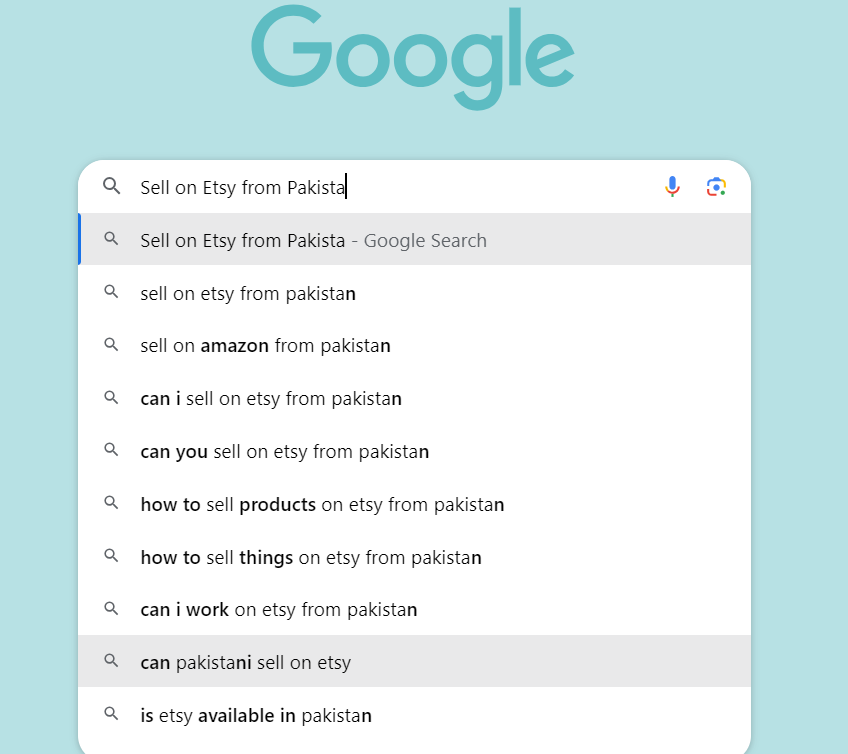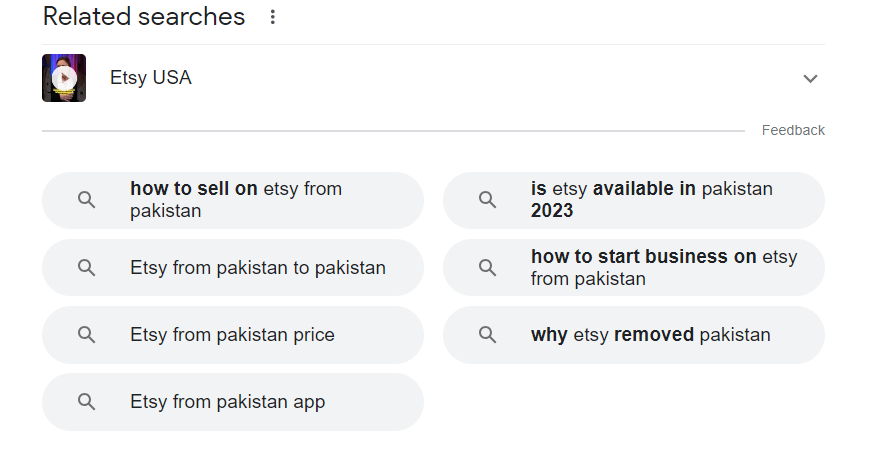SEO experts utilize many tactics to enhance website rankings, keywords remain a fundamental element of a robust and successful marketing campaign.
While several methods are widely utilized, some remain underutilized. One such potent but sometimes overlooked strategy is the integration of LSI keywords, which can significantly elevate Google rankings.
What is LSI keywords full form?
The LSI keywords full form is Latent Semantic Indexing Keywords.
In 2023, LSI Keywords have emerged as a crucial facet of search engine optimization and content marketing. Incorporating these keywords into content not only improves search rankings but also augments organic traffic to the website.
According to recent research, websites that used LSI keywords saw an average increase in organic search traffic of 68% when compared to pages that did not use this strategy. Additionally, 60% of marketers using LSI keywords reported elevated search engine rankings, with 75% attesting to its positive impact on their overall SEO strategy.
You may also like: How to Make Money With SEO: A Step-by-Step Guide for Beginners
This post will show you how to include LSI keywords in your marketing strategy in an efficient manner. Let’s delve into the details!
Define LSI Keywords
LSI Keywords, short for Latent Semantic Indexing Keywords, refer to conceptually connected terms that search engines use to gain a profound understanding of the content present on a webpage.
The technology behind LSI Keywords was initially patented in 1989, defined as “A methodology for retrieving textual data objects.” Essentially, it involves utilizing related words and phrases, commonly known as “LSI keywords,” to classify a page’s topic more precisely.
LSI Keywords Benefits
There are several benefits of using LSI keywords in your content.
- Improves the Quality and Relevance of Content
- Enhances On-Page SEO Optimization
- Growing Website Traffic and Rankings
- Elevated User Experience
Are LSI Keywords the Same As Synonyms?
Although LSI (Latent Semantic Indexing) keywords and synonyms share a connection, they are not precisely synonymous. Initially, search engines like Google based keyword relevance on frequency—repeating a term multiple times signaled its importance. This emphasis on keyword density has evolved.
Presently, Google’s algorithms are more sophisticated, emphasizing context over mere repetition for search engine rankings. Regarding synonyms, LSI keywords, while related to the main keyword, may not be exact synonyms. On the other hand, synonyms improve content relevancy and add context.
For instance, if the primary keyword is “shoes,” LSI keywords like “footwear,” “sneakers,” and “high heels” provide additional context. While both LSI keywords and synonyms play roles in SEO, LSI keywords are often deemed more impactful, offering extra layers of meaning and context to content.
How Latent Semantic Indexing Works
LSI operates by recognizing clusters of words frequently found together in documents, organizing them into “latent semantic spaces.”
- Search engines can better understand the context and intent of a piece of material by comparing the terminology inside it to various semantic regions.
- LSI algorithms conduct extensive analysis on a substantial collection of documents to unveil patterns of word usage.
- These identified patterns then serve to group words and phrases into semantic spaces.
- This systematic approach aids search engines in effectively deciphering the meaning and context of the content by cross-referencing the words and phrases in the content with the established semantic spaces.
Why Do Related Words and Phrases Matter on a Page?
In the past, Google and other search engines could determine a page’s topic simply by examining the terms that were included. This was the early days of SEO. If a particular keyword, such as “Freelancing,” appeared frequently, Google would conclude that the page was primarily about freelancing.
This emphasis on keyword density highlighted how crucial it is to use a keyword frequently in order to guarantee that Google correctly determines the topic of the page.
However, as we fast forward to today, Google has significantly evolved. Its current objective is to comprehend a page’s overarching topic rather than relying solely on individual keywords. In the modern SEO landscape, Google’s algorithms prioritize a more nuanced understanding of a page’s content and context. So add LSI keywords to your page.
You may also like: Freelancing On A Platform Vs. Independent: Which One Is Best For You.
Example to understand
Consider this scenario: imagine you’ve recently published a blog post dedicated to cold brew coffee. Google, in its search analysis, will indeed examine your page for the explicit use of the term “cold brew coffee” in various elements such as the title tag, content, image alt text, and more.
However, its sophistication goes beyond a literal keyword match. Google will also scrutinize your content for associated keywords, encompassing terms like “filter,” “temperature,” “grind,” “cold water,” and “ice.” The presence of these related keywords signals to Google that your page is comprehensive and relevant to the broader topic of cold brew coffee.
It’s important to note that semantically related terms differ from synonyms; they are closely connected concepts to your target keyword.
For instance, consider the word “jogging.” While “running” is a synonym, semantically related terms include “shoes,” “cardio,” and “5k.”
Integrating these related terms into your content can enhance on-page SEO and provide a more comprehensive understanding of search engines.
Now, let’s explore how to identify these semantically related keywords.
-
Google Autocomplete
Google Autocomplete is a feature that offers suggested search queries as you type into the search bar. Utilizing Google Autocomplete can be an excellent resource for discovering LSI keywords, as it mirrors the real searches people are conducting, providing valuable insights into related terms and topics.
For example, I published ”Creating Account and Selling on Etsy from Pakistan” post.
And to optimize that page, I typed “Etsy from Pakistan” into Google.
And paid attention to the words that it showed to me.
These words are related keywords to Etsy.
After all, they’re terms that human users search for when they search for anything related to ”Selling on Etsy from Pakistan”.
-
Google Related Searches
Located at the bottom of Google’s search results page, the “Related Searches” section offers additional search terms closely linked to your initial search query. These related searches serve as valuable sources for LSI keywords, providing insights that can enhance the relevance and depth of your content.
-
SEMrush Keyword Magic Tool
The SEMrush Keyword Magic Tool is a robust resource that furnishes a comprehensive list of related keywords, complete with essential data such as search volume and competition levels. This tool not only aids content marketers in discovering keywords targeted by competitors but also helps uncover long-tail keywords with lower competition.
-
LSIGraph
LSIGraph is a valuable tool that generates a list of LSI keywords intricately related to your primary keyword. Alongside providing semantic connections, LSIGraph supplies additional data such as search volume and CPC. This tool proves beneficial for content marketers striving to optimize their content effectively for search engines.
-
Ahrefs
Ahrefs stands out as another excellent LSI tool featuring the “Keyword Explorer” function. By entering a primary keyword, content marketers receive a comprehensive list of related keywords, complete with search volume, difficulty scores, and other relevant data.
Using these LSI keyword tools empowers content marketers to identify an extensive array of related keywords, enabling them to enhance the relevance and visibility of their content in search results.
You may also like: 8 Must-Have Skills for an Expert Content Marketer
Best Practices for Finding LSI Keywords
Are you tired of struggling with the challenges of ranking your content on search engines? Enhancing your search engine optimization (SEO) can be achieved through the strategic use of LSI (Latent Semantic Indexing) keywords.
Wondering how to unearth the best LSI keywords? Here are some effective practices to consider:
- Utilize keyword research tools: Leverage tools such as Google Keyword Planner, SEMrush, and Ahrefs to discover LSI keywords that complement your primary keyword.
- Explore related searches: Scroll down to the bottom of Google’s search results page and explore the “related searches” section for additional ideas and insights.
- Analyze competitor content: Investigate the content of your competitors to identify the LSI keywords they use. Incorporate these findings into your content creation for improved relevance.
- Use natural language: Ensure that LSI keywords seamlessly integrate into your content, flowing naturally with your writing style.
- Prioritize user intent: Align your LSI keywords with user intent by anticipating what your audience is searching for and incorporating those keywords into your content.
By following these best practices, you can pinpoint relevant LSI keywords and elevate your SEO efforts.
Final thoughts
In the world of content marketing, LSI keywords play a crucial role. Integrating semantically related phrases into your content not only adds context and relevance for search engines but also increases the likelihood of achieving higher rankings in search results.
By adhering to best practices and incorporating LSI keywords naturally, you can craft high-quality content that addresses the needs of your target audience, positioning yourself ahead of the competition in the digital landscape.








